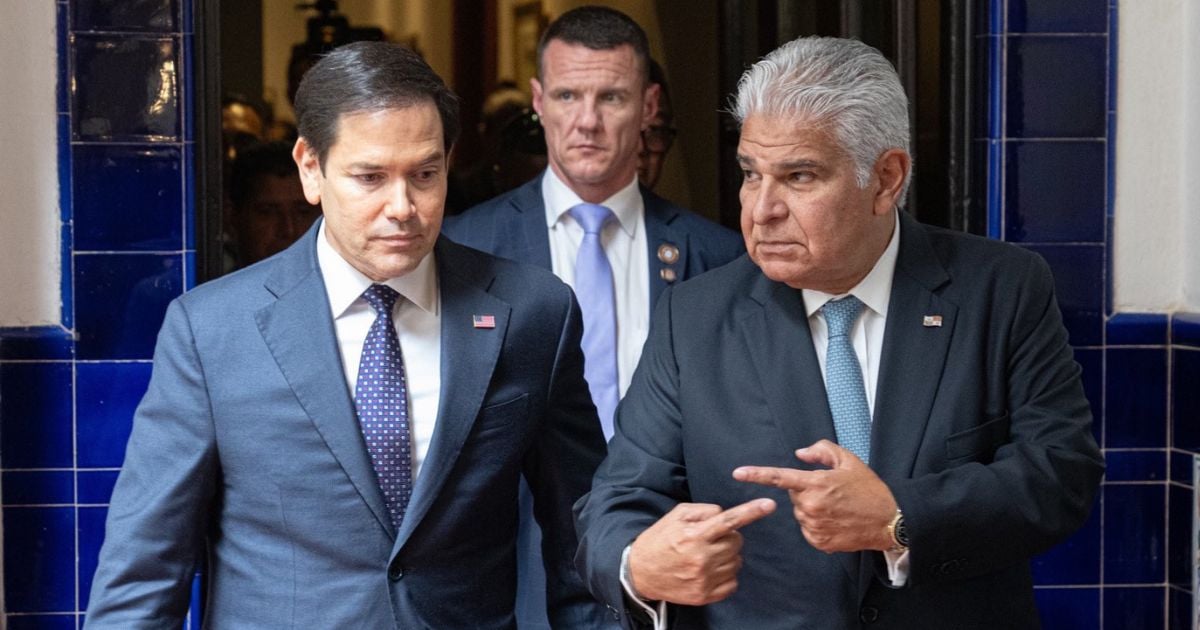Marco Rubio, the U.S. Secretary of State, issued a stern warning on Sunday, emphasizing that the United States will not allow the Chinese Communist Party to further extend its grip on the Panama Canal area. This statement was made public on social media following Rubio's meeting with Panamanian President José Raúl Mulino and Foreign Minister Javier Martínez-Acha.
On his X account (formerly known as Twitter), Rubio made it clear to Panamanian officials that Washington is determined to curb China's escalating influence over one of the world's most strategic commercial routes. These remarks align with recent threats from U.S. President Donald Trump, who has expressed his desire to regain control over the Panama Canal.
During the meeting, the discussions also covered efforts to address the massive migration crisis affecting the hemisphere and ensure fair competition conditions for American businesses. Nonetheless, President Mulino downplayed Rubio's warnings, asserting that he does not perceive any real threat to the treaties governing the canal's control.
“I do not feel that there is any real threat at this moment against the treaty, or the use of military force to seize the canal,” Mulino stated during a press conference, as reported by El Universal Online. Despite this stance, the U.S. State Department reiterated that the current situation is unacceptable and demanded "immediate changes" to counter China's influence over the Panama Canal.
“Secretary Rubio made it clear that this 'status quo' is unacceptable, and without immediate changes, the United States would have to take necessary measures to protect its rights under the Treaty,” the State Department declared in a statement.
So far, Panama has not announced any concrete measures in response to U.S. pressure, while China continues to expand its economic and commercial presence in the region.
The Cuban-American Marco Rubio touched down in Panama this Saturday, marking his first international tour as head of U.S. diplomacy. He was welcomed by Foreign Minister Javier Martínez-Acha Vásquez. This trip, which will also include stops in El Salvador, Costa Rica, Guatemala, and the Dominican Republic, aims to strengthen bilateral relations and cooperation on key issues such as migration, regional security, and economic growth.
“We are working day, night, and weekends to bolster our national security, protect our borders, and enhance the economic prosperity of Americans,” Rubio declared upon his arrival in Panama. The Secretary of State highlighted the strategic importance of the region for the future prosperity of the United States, underscoring the need for closer collaboration with its regional partners.
U.S. Concerns Over China's Role in Panama
Why is the U.S. concerned about China's influence on the Panama Canal?
The U.S. is worried that China's growing control over the Panama Canal could threaten American strategic and economic interests in the region, given the canal's importance as a major global trade route.
What actions might the U.S. take to counter China's influence?
The United States might implement diplomatic pressures, economic measures, or other strategic actions to safeguard its interests and influence in the region.
How has Panama responded to U.S. concerns?
Panama has not announced any specific measures in response to U.S. pressure, with President Mulino expressing that he does not see an immediate threat to canal treaties.
